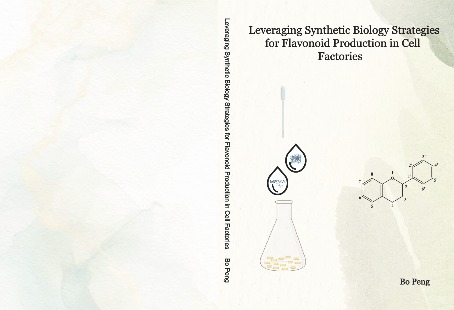PhD defence Bo Peng
| When: | Tu 19-11-2024 11:00 - 12:00 |
| Where: | Academy Building |

Leveraging synthetic biology strategies for flavonoid production in cell factories
Flavonoids are a large group of naturally occurring secondary metabolites with a polyphenolic structure and are well known for their beneficial effects on health. Flavonoids play multiple roles in plants, functioning as photoreceptors, antioxidants, antimicrobials, feeding deterrents, visual attractants, and light filters. In humans, flavonoids offer a variety of health benefits, including antioxidant, anti-inflammatory, anti-mutagenic, antiviral, antiallergic, cardiovascular protection, and cytotoxic effects. The health benefits of flavonoids make them an attractive ingredient for use in nutraceutical, pharmaceutical, and cosmetic applications. The current industrial production of flavonoids mainly relies on extraction from plant tissues, which cannot meet the demand of the growing market due to low yields, unpredictable planting and harvesting seasons, and complex and laborious extraction and purification processes. Significant progress in the biosynthesis of flavonoids in microorganisms over the past decade have demonstrated this approach to be an optimal alternative strategy, offering advantages such as low energy requirements, and high product purity. The primary objective of this thesis is to utilize synthetic biology strategies to produce flavonoids in microbial cell factories which includes three main aspects. The first aspect focuses on the rational design of rate-limiting enzymes in flavonoid biosynthesis to enhance the production of methylated flavonoids, hesperetin and homoeriodictyol. The second aspect involves employing the newly created P. rubens 4KO strain from Prof. Driessen’s group for the high-efficiency production of naringenin. The third aspect concentrates on the production of highly valuable novel flavonoids through pathway design and directed evolution.
|
Supervisor:
| |
|
Co-supervisor:
|
